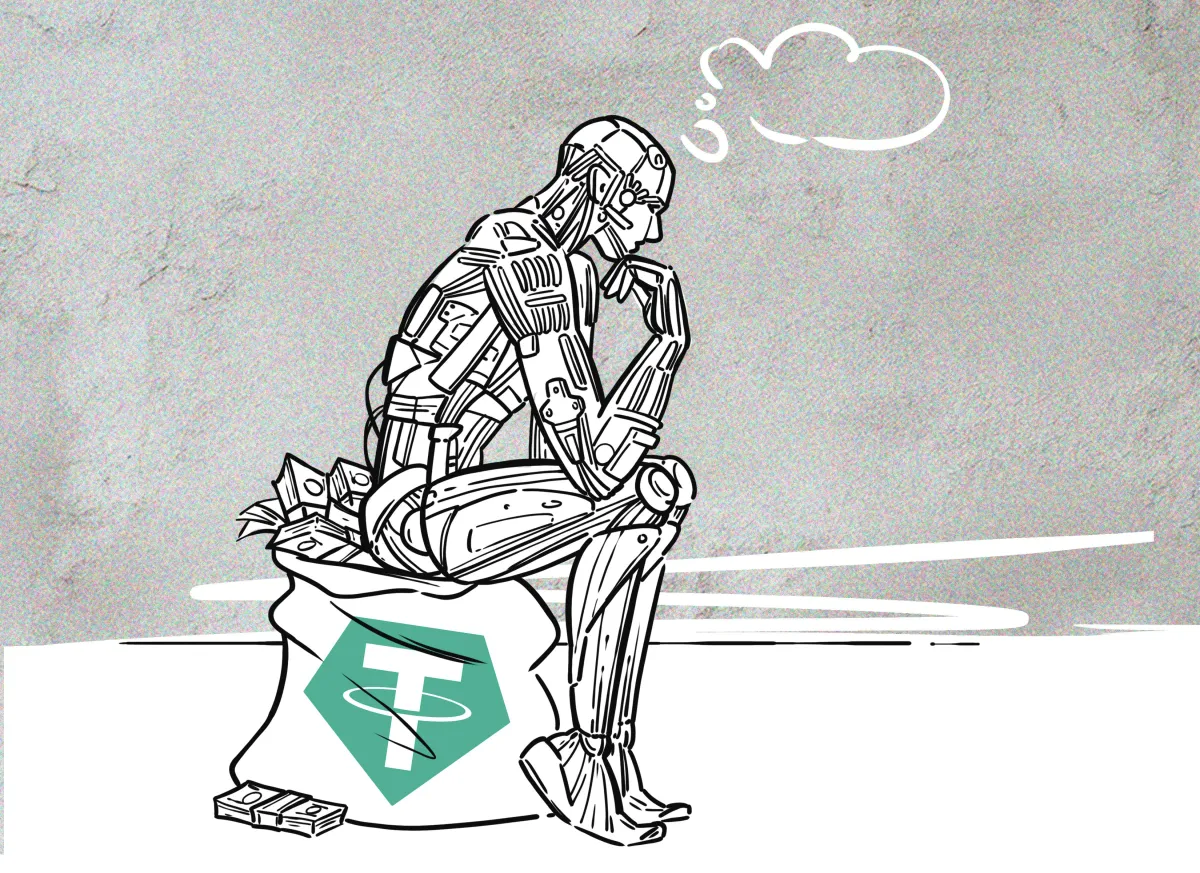
USDT stablecoin issuer Tether announced on Tuesday that it wants to destabilize the power dynamics in the artificial intelligence industry with the launch of a new company division focused on developing open-sourced AI.
“As concerns grow over the monopolisation of AI technologies by Big Tech, Tether data, with this announcement, is stepping forward to champion transparency and privacy in AI model development.”
The crypto native firm did not disclose how much it is investing in this new venture, nor did it give any details about how it plans to defy the current market monopoly, vaguely noting that it will be developing “open-source multimodal AI models” to create solutions for real-world challenges.
The organization behind the third-largest cryptocurrency by market cap first included AI in its portfolio in September 2023 when it acquired a stake in Northern Data Group, a Frankfurt-based company specializing in computing power for AI data crunching.
According to Tether's CEO Paolo Ardoino, the purpose of this expansion is “redefining AI boundaries and democratizing privacy-preserving open AI technology, while setting industry benchmarks for innovation, utility, and transparency.”
But, how much redefining can a new market player have in an industry dominated by the commercial interests of the most powerful and valuable corporations on earth?
Tether’s focus on open-source and community feedback might be well-intentioned but will likely be in vain. In an interview in January with Politico, legal scholar Ganesh Sitaraman stressed that open-source is a spectrum and that in the AI sector, “the layers where concentration occurs, like chips and cloud services, are not solved by open-source.”
For example, Nvidia controls 85 to 90% of the market for AI chips, while Amazon, Microsoft, and Alphabet (Google's parent company) control about 65% of the cloud centers worldwide.
It's also unlikely that Tether will manage to “democratize access to cutting-edge AI models” as it doesn’t have access to the technology financed by Big Tech, which, having taken several years and multiple billions of dollars to be created, is patented intellectual property.
Finally, if USDT’s maker develops a product capable of upsetting the balance of power in the AI tech sector, it might be hard to establish partnerships. As economics researcher Cecilia Rikap recently pointed out, the tech giants leading the AI race are also “prominent venture capital investors” with shares in most industry-related promising start-ups.
Blockchain can help improve the transparency and privacy of artificial intelligence, and several AI protocols are already working towards that end. But given that the companies pushing AI forward are the most powerful corporations in the world, Tether should probably curb its enthusiasm on what, given its limited resources and influence, it can do to challenge them.

